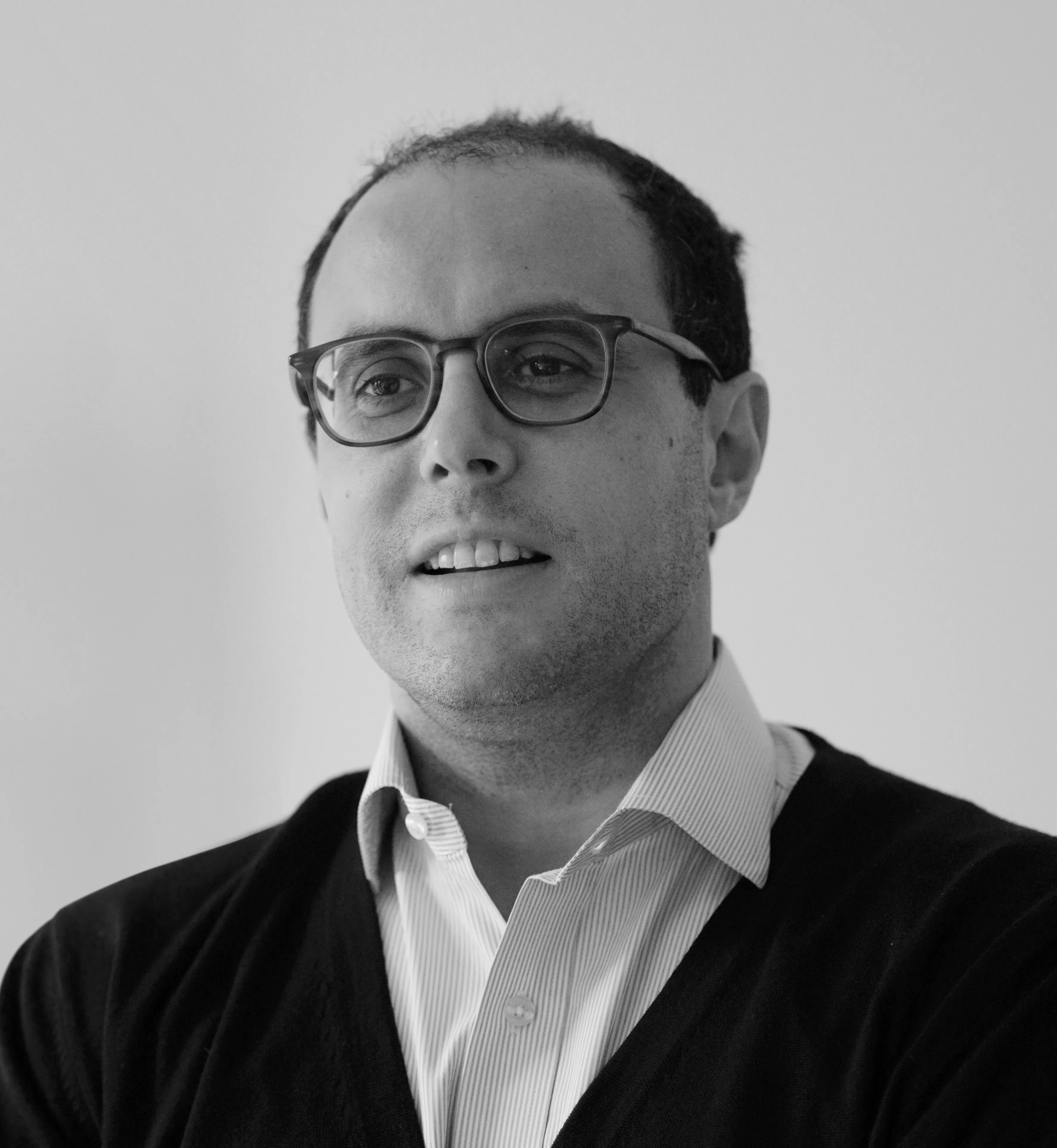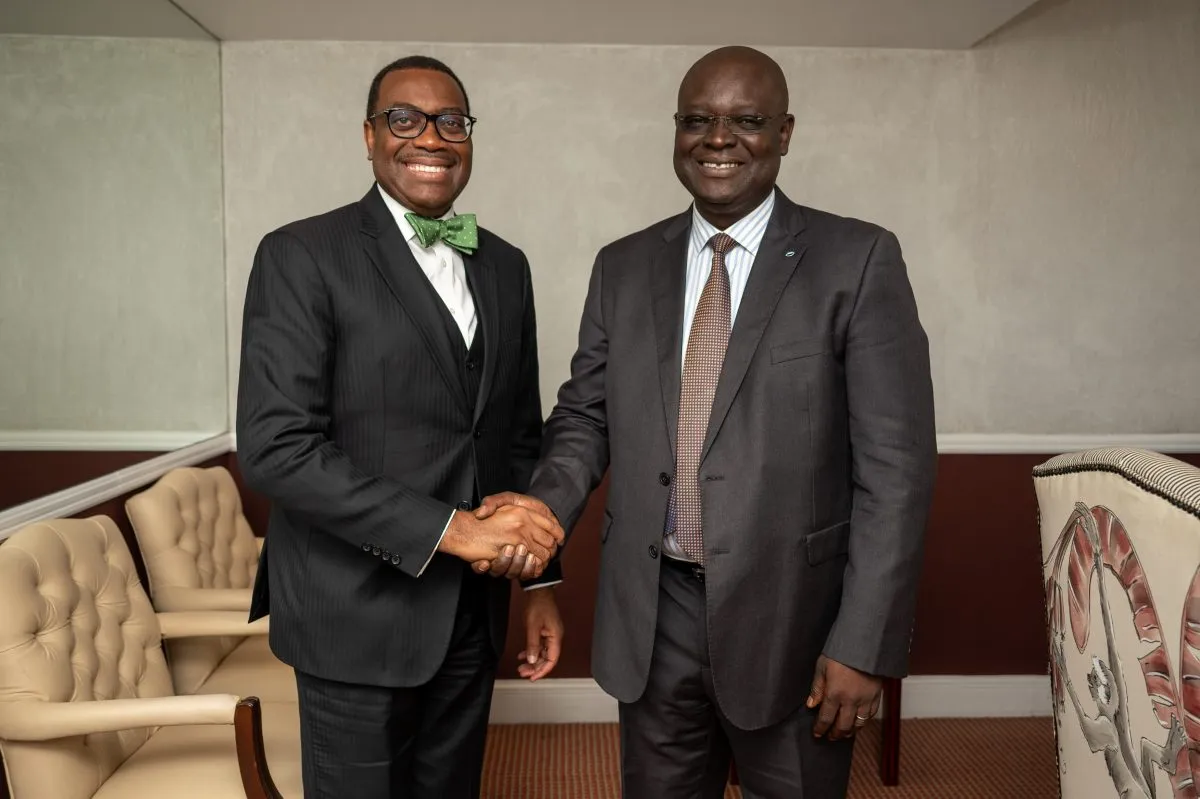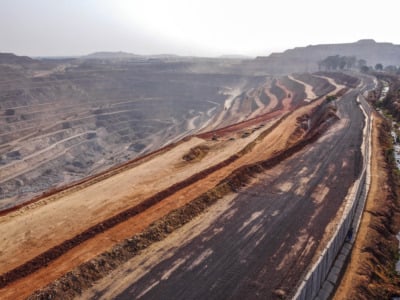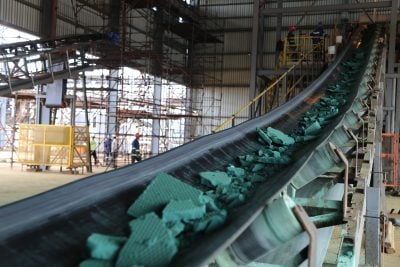The African Capacity Building Foundation (ACBF) was established by African governments and their international partners in 1991 to work with the public and private sectors, academia and other relevant bodies to raise the level of the continent’s human development in terms of its all round capacity.
Mamadou Biteye (pictured right), the current executive secretary of the organisation, says the institution wants to play a key role in driving ideas in an increasingly complex world.
“One of the biggest challenges we face in Africa is capacity, talent and also knowledge generation. Our vision is to make ACBF the preferred institution for capacity building and knowledge generation supporting the development effort for Africa,” he tells African Business over a Zoom call back home in Harare, Zimbabwe, having just finished a whistle stop tour attending events in Africa and the Gulf.
When asked where ACBF sits today in the development space, he defines “development” as extending prosperity to as many people as possible, and the organisation’s role as to generate the knowledge required to support evidence-based policy that will make this possible.
Over the years ACBF has established think tanks around the continent to help stimulate ideas, generate strategies, and inform economic development planning and policy formulation. Currently, the ACBF network comprises around 60 think tanks covering various sectors and domains of knowledge. Through this network and the annual Africa Think Tank Summit, ACBF harnesses the collective research capacity to address key development questions on the continent.
Biteye says this is critical at a time when Africa is wrestling with big questions including the existential threat of climate change, the reordering of the global political and financial systems and the energy transition. This means that Africa must have a firm voice in the world’s decision-making arenas.
The insights and ideas that are generated by the ACBF are usually shared directly with policymakers around the continent and are also available on its website, through a knowledge hub. The problem, Biteye notes, is that while there are thousands of visitors to the site, most of them are from outside the continent.
“One of the challenges that we have is how to reverse that trend and to get Africa to become the biggest consumer of these policy briefs, policy insights and other forms of knowledge that we produce,” he says.
Biteye describes the Africa Think Tank Summit, which ACBF organises, as a platform which brings together the “knowledge generators and the end users”.
This year’s summit will be held in Abidjan, Côte d’Ivoire. “We will be looking at the key questions we need to answer to be able to streamline carbon markets and structure them so that African countries can actually benefit and increase the value that they derive from them,” he says.
The Africa Export Competitiveness Report which is a joint initiative led by ACBF, the Arab Bank for Economic Development in Africa (BADEA), ShiftImpact Africa, and the Global Competitiveness Institute will be launched in August. It examines enabling environment, demand sophistication private sector capacity and export performance of African countries. The 2024 edition covers all 55 countries in Africa. In addition, the organisation’s Africa Capacity Report examines the strengths and weaknesses in capacity building in Africa and identifies which actions need to be taken.
Four key impact areas
The four development pillars that the ACBF concentrates on are: climate change and energy for productive use; agribusiness and food sovereignty; trade as an engine of economic development; and economic and social governance.
On climate change, Biteye says: “The Paris Agreement was developed by over 5,000 experts and less than 1% of those experts were Africans. That tells you how little input we have into these global compacts that we are committed to.”
ACBF is working with leading think tanks and foundations such as the Science for Africa Foundation to build the capacity of African experts and reverse this trend.
He points out that African countries struggle to fund their national climate adaptation plans. In many cases, countries fail to tap international capital and resources because of a lack of capacity within the civil service and government. “We have developed a new practice called project preparation capacity to support national and local governments as well as the private sector with bankable project preparation.”
In the area of trade, among other things, ACBF helps to sharpen financial literacy and enhance the business skills of small and medium enterprises (SMEs) so that they can grow their businesses, create prosperity and build resilience against climate change.
Happy taxpayers
Under the Economic and Social Governance pillar, ACBF focusses on fiscal management taxation capacity and evidence-based policy making. A pilot programme in leadership and governance in PFM is underway in Côte d’Ivoire, Ghana, Nigeria, Kenya, Senegal, and Zimbabwe.
Moreover, the School of Taxation and Fiscal Management promotes transparency, broadens the tax base to democratise tax responsibilities, and ensures that tax revenues are invested in citizens’ well-being. “Our goal is to make Africans happy taxpayers, because they are able to see how their taxes are managed, how they are being invested and what services are being derived from them.”
With some support from the World Bank Bank and the Willian and Flora Hewlett Foundation, the ACBF aims to build the capacity of think tanks in Africa to increase their influence and improve evidence-based policymaking and research generation. The project, set to start later this year, will focus on ensuring that AU members can effectively participate in global forums like the G20 and the UN COP climate summits. It will support flagship projects such as the African Continental Free Trade Area.
There is a lack of capacity in new knowledge domains such as data science, artificial intelligence, and digital platforms. “Both public and social sectors in general do not have data science capacity, especially in new forms of technology such as artificial intelligence,” he says.
Citing a prediction from the World Economic Forum that over 70% of global wealth will be generated through digital platforms in the next decade, Biteye asks: “How much research are we doing on the continent so that Africa is not being left behind?”
Another key concern that analysts have raised is the lack of ownership of and even access to Africa’s data, which is, in the main, collected by private parties. “It’s not about who owns the data. The biggest question is how users and those who need it can access it to be able to mine it and to use it.”
To overcome the weaknesses in regulatory capacity, the ACBF, in conjunction with the Agrican Union, ECA, the European University Institute, the Florence School of Regulation and several other partners, has launched the African School of Regulation.
Greasing wheels of progress
Biteye used to head the Rockefeller Foundation’s Africa arm. When asked about the role of philanthropies in Africa’s development space, he feels they have an important role to play, but more as risk takers, to explore new ideas or support new ventures. Philanthropy can take risks that governments and private sector can’t, acting as “the grease that oils the wheels of progress in humanity,” he says.
Biteye also observes that in Africa, while there is a growing number of corporate philanthropies and foundations established by high-net-worth individuals, many of these entities function more as corporate social responsibility arms rather than true philanthropic investors. They often focus on immediate critical needs rather than transformative ideas.
What concerns Biteye, however, is the loss of trust in institutions, a global phenomenon that Africa is demonstrably not immune from, he says, pointing to the exit from the Economic Community of West African States (ECOWAS) of military-led Niger, Mali and Burkina Faso.
The confidence of the average African citizen in the African Union’s ability to drive a transformative agenda, as outlined in Agenda 2063, is not high, Biteye believes. Institutions, especially those of the future, will be critical to the continent’s success.
“The two basic things that you need are a good seed and fertile soil,” he explains, with talent and knowledge the seed, and institutions the soil.
Investing in human capital and transforming institutions are critical ingredients for capacity development and strengthening on the continent. They are essential for ensuring that Africa’s institutions are fit for purpose in meeting both today’s challenges and future demands, Biteye concludes.
Want to continue reading? Subscribe today.
You've read all your free articles for this month! Subscribe now to enjoy full access to our content.
Digital Monthly
£8.00 / month
Receive full unlimited access to our articles, opinions, podcasts and more.
Digital Yearly
£70.00 / year
Our best value offer - save £26 and gain access to all of our digital content for an entire year!

 Sign in with Google
Sign in with Google 



